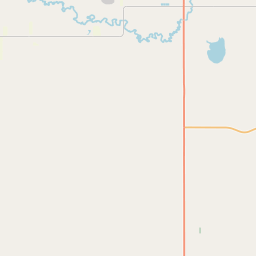Mound City, South Dakota
Historical marker location:
Mound City, South Dakota
( Marker is on 306th Avenue (U.S. 83) 0.3 miles north of 3rd Street, on the left when traveling north.)







© OpenStreetMap contributors
Loading...
Searching for other points of interest within 3 miles of this location.South Dakota is home to the world's largest sculpture, the Crazy Horse Memorial. The sculpture, which has been under construction since 1948, depicts the Oglala Lakota warrior Crazy Horse riding a horse and pointing towards the horizon.
About Campbell County
Campbell County Timeline
Campbell County, SD, located in the north-central part of the state, has a rich and diverse history that spans several centuries. The region initially belonged to the Lakota Sioux tribe, who inhabited the area long before the arrival of European settlers. In the early 1800s, fur traders and explorers began venturing into the area, establishing trade routes and temporary settlements.
In the late 1800s, with the completion of the Northern Pacific Railroad, the region experienced a significant influx of settlers. Campbell County was officially established in 1873 and named after John Allen Campbell, the governor of the Dakota Territory at the time. The county quickly grew as more people flocked to the area in search of land for farming and ranching.
The early years of Campbell County were marked by the establishment of small towns, such as Mound City and Herreid, which served as hubs for trade and commerce. The agricultural industry became the backbone of the local economy, with settlers cultivating crops like wheat, barley, and corn, as well as raising livestock.
Throughout the 20th century, Campbell County continued to develop and evolve. The construction of highways and improved infrastructure contributed to the growth and prosperity of the region. Today, the county remains primarily rural, with agriculture playing a significant role in its economy. Its rich history is celebrated and preserved through local museums, historical sites, and community events.
In the late 1800s, with the completion of the Northern Pacific Railroad, the region experienced a significant influx of settlers. Campbell County was officially established in 1873 and named after John Allen Campbell, the governor of the Dakota Territory at the time. The county quickly grew as more people flocked to the area in search of land for farming and ranching.
The early years of Campbell County were marked by the establishment of small towns, such as Mound City and Herreid, which served as hubs for trade and commerce. The agricultural industry became the backbone of the local economy, with settlers cultivating crops like wheat, barley, and corn, as well as raising livestock.
Throughout the 20th century, Campbell County continued to develop and evolve. The construction of highways and improved infrastructure contributed to the growth and prosperity of the region. Today, the county remains primarily rural, with agriculture playing a significant role in its economy. Its rich history is celebrated and preserved through local museums, historical sites, and community events.
Campbell County Timeline
This timeline provides a condensed summary of the historical journey of Campbell County, South Dakota.
- 1890 - Campbell County is established on March 8, 1890.
- 1891 - The first post office is established in Herreid.
- 1892 - The county's first courthouse is built in Mound City.
- 1908 - The Chicago, Milwaukee, and Saint Paul Railroad reaches the county.
- 1927 - Major flooding occurs along the Grand River.
- 1939 - Electrification of rural areas begins with the creation of the Campbell County Electric Cooperative.
- 1959 - The Herreid School District is formed.
- 1972 - Mound City Elementary School is built, replacing several small rural schools.
- 1997 - Construction of the Grand River Dam is completed.
- 2007 - A wind farm is established in Campbell County, contributing to renewable energy production.
- 2010 - The county's population reaches its peak at 1,466 residents.